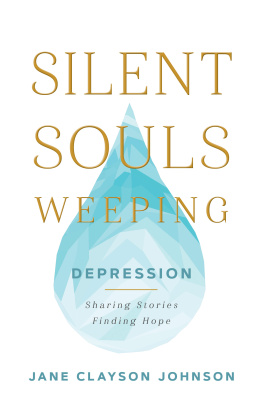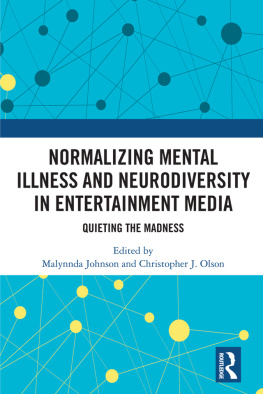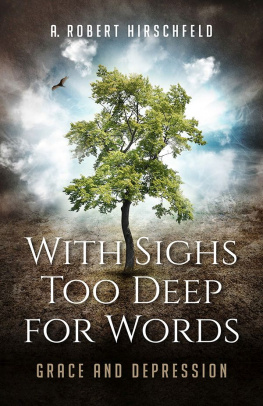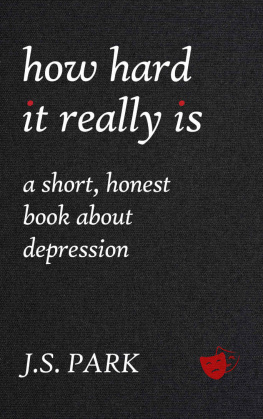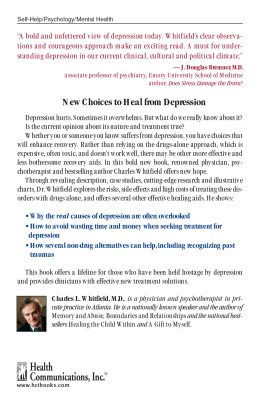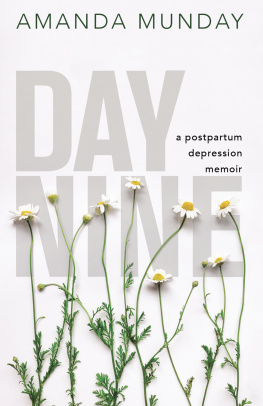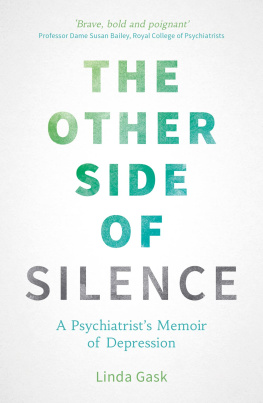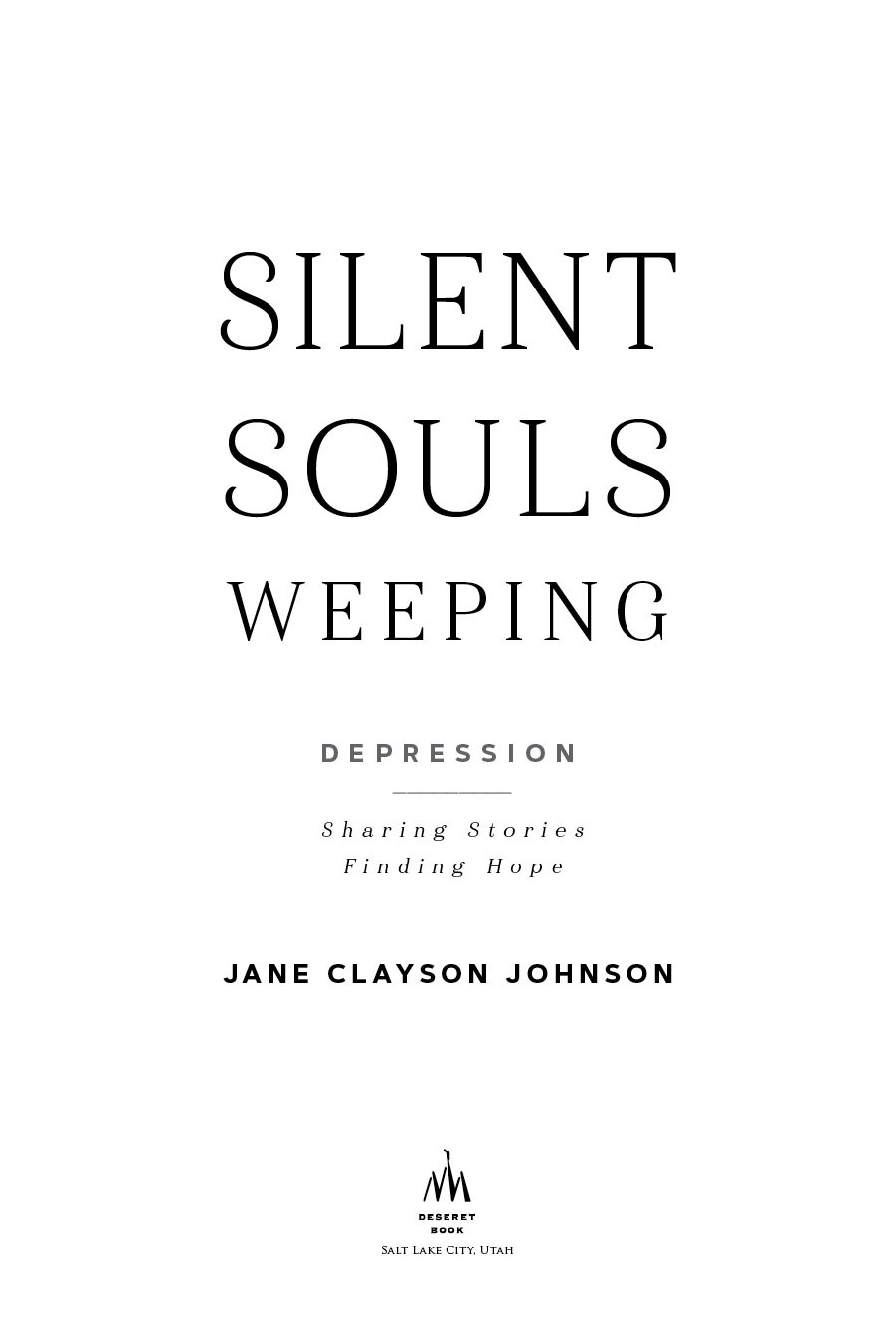2018 Jane Clayson Johnson
All rights reserved. No part of this book may be reproduced in any form or by any means without permission in writing from the publisher, Deseret Book Company, at permissions@deseretbook.com or PO Box 30178, Salt Lake City, Utah 84130. This work is not an official publication of The Church of Jesus Christ of Latter-day Saints. The views expressed herein are the responsibility of the author and do not necessarily represent the position of the Church or of Deseret Book Company.
Deseret Book is a registered trademark of Deseret Book Company.
Visit us at deseretbook.com
Library of Congress Cataloging-in-Publication Data
Names: Johnson, Jane Clayson, author.
Title: Silent souls weeping : depression-sharing stories, finding hope / Jane Clayson Johnson.
Description: Salt Lake City, Utah : Deseret Book, [2018] | Includes bibliographical references.
Identifiers: LCCN 2018039977 | ISBN 9781629725253 (hardbound : alk. paper)
Subjects: LCSH: Depression, MentalReligious aspectsThe Church of Jesus Christ of Latter-day Saints. | Depression, MentalReligious aspectsMormon Church. | The Church of Jesus Christ of Latter-day SaintsDoctrines. | Mormon ChurchDoctrines.
Classification: LCC BX8643.D44 J64 2018 | DDC 248.8/625dc23
LC record available at https://lccn.loc.gov/2018039977
Printed in the United States of America
Lake Book Manufacturing, Inc., Melrose Park, IL
10 9 8 7 6 5 4 3 2 1
Book design Deseret Book Company
Cover design by Sheryl Dickert Smith
Art direction by Richard Erickson
Cover image Bellaart/Shutterstock
So my children will understand
Chapter 1
Depression in the First Person: My Story
Why art thou cast down, O my soul? and why art thou disquieted in me?
Psalm 42:5
Not long ago, my daughter and I attended an Easter performance at a church in Nashua, New Hampshire. During the intermission I ran into an old friend, a chirpy, optimistic, upbeat soul Ive always loved for her candor and authenticity. We immediately started chatting and catching up on our busy lives and growing families. At one point she asked, So, tell me, whats new with you? What are you up to these days?
Well, Im writing another book, I replied. And then I just spit it out, without thinking: About depression. Her eyes widened in surprise. Really? she said. I could practically see the wheels turning in her mind, and then she asked, You dont have depression... do you?
When I started this project I wasnt so direct. I may have worried a little that someone would ask that very question. This is not a book I ever expected to write. To be frank, I grew up with the notion that mental illness is not something to discuss. Ever. Id bought into the stigma associated with it. After all, we believe in a plan of happiness, not a plan of depression. Were taught, Men are, that they might have joy (2 Nephi 2:25). Depression doesnt fit readily or comfortably into such a construct.
I want to be clear: I am not a doctor or a therapist. My experience with depression is personal and observational, not scientific. Although I have consulted experts, my intention is not to diagnose anyone or to offer any sort of treatment plan, and this book is not a self-help guide to overcoming depression and mental illness.
I also want to be clear that this book is limited in its scope; it offers many individual insights into the lives of depression sufferers, while saying little or nothing about some very important aspects of this illness. For example, it is known that the elderly are increasingly susceptible to depression as they age and often become more homebound and isolated, but I did not delve into the experience of that specific population.
Likewise, there is only token acknowledgment of the high levels of depression in the LGBTQ+ community. My intention is to call attention to the strugglethe rejection, isolation, stigmatizationwhile in no way suggesting that there is a direct correlation between being gay, for example, and experiencing elevated levels of depression as a clinical illness. Members of our LGBTQ+ population often do not feel embraced theologically or accepted culturally into the Latter-day Saint community. I seek to highlight that being marginalized or rejected, regardless of cause, aggravates depressionthe greater the isolation, the more extreme the risk of serious, even life-threatening emotional health problems. This is a subject of great complexity, needing a book of its own.
So, rather than being a comprehensive view of all aspects of depression, this work is simply my effort to raise the blinds on the windows of a darkened room and talk openly about what it means to be depressedspecifically what it feels like for members of The Church of Jesus Christ of Latter-day Saints to suffer from diseases of the mind. Its also a primer to help educate those who are spared this challenge. I want to offer hope and encouragement and urge us all to action. There are precious souls stranded in the wilderness of this affliction needing our rescue.
For the past three years, Ive put my journalism skills to use and spent every spare minute researching, interviewing, and writing the stories of Latter-day Saints who have depression and other mental illnesses. This book is a collection of those experiences, along with a few of my own. I hope it will become a means for all members of the Churchwhether they suffer from depression themselves or love someone who doesto set aside their preconceived notions about mental illness and be more willing to bear one anothers burdens, that they may be light... and... mourn with those that mourn... and comfort those that stand in need of comfort (Mosiah 18:89).
Although in my own circle of acquaintance I am most familiar with the emotional challenges faced by Latter-day Saint women, I have interviewed broadly in the hopes that allmen and women, adults and youth, priesthood leaders and those who minister under their directionwill find relatable stories and examples that can be helpfully applied to their own situations. My desire is that this book will launch conversations within families, between friends, in Church settings such as Relief Society and priesthood meetings, and between Church members and their ecclesiastical shepherds, conversations that will improve understanding and the quality of the ministering we offer as a result.
My Story
Abraham Lincoln, arguably one of the most influential men of the nineteenth century, experienced several documented periods of deep depression. At one point, he wrote to a friend: I am now the most miserable man living. If what I feel were equally distributed to the whole human family, there would not be one cheerful face on earth. Whether I shall ever be better, I cannot tell; I awfully forbode I shall not. To remain as I am is impossible.
I cant think of a better way to describe how I felt during the worst of my own depression. Thankfully, I no longer feel this way. But I understand; the experience of depression is excruciating.
Over the years, I had experienced small, contained bouts of what I call situational sadness. Nothing seriousjust the ups and downs of life. Nothing a good cry (or two or three) couldnt fix. It wasnt until I was finally living my dream of being a wife and a mother to five children (two of my own and three stepchildren) that the insidious fingers of mental illness wrapped themselves around my mind and squeezed. Tight.

